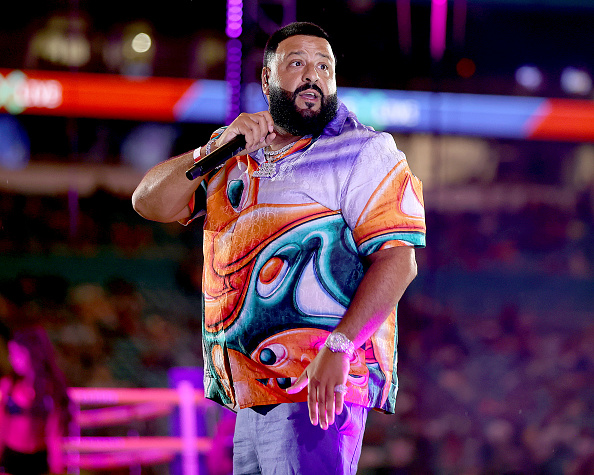
There isn’t a music fan alive familiar with DJ Khaled that hasn’t questioned what exactly the New Orleans native does. There also won’t be a Khaled fan alive who — after listening to his latest album — will get an answer.
Released on Aug. 26, Khaled’s 18-track project “God Did” contains features from both well-known artists and newcomers, with most tracks being trap-rap and hip-hop. In fact, the album might raise even more confusion with its lack of focus, but will for sure keep listeners awake with its high-production value and radio-ready instrumentals.
With entertaining endeavors like the title track “God Did,” “Use This Gospel,” “Fam Good, We Good,” “Grateful” and “Beautiful,” the album holds true to Khaled’s signature of stuffing names into production-reliant songs hoping to get plays, even though it fails to be unique.
The album begins with Drake serenading us on “No Secret,” a “Donda”-like synth melody with a jumble of lyrics that serves as a solid introduction but has no impact because of its short length.
The best song on the album, “God Did,” holds the longest contribution by DJ Khaled on the album, a message to the naysayers who he explains “didn’t believe in us.” The song holds the best verses on the album by Lil Wayne and Jay Z, with the latter giving us a four-minute rant. The production value is amazing, with an excellent hook by newcomer Fridayy – a Philadelphia native. The song does seem bloated, however, with an unnecessary Rick Ross and John Legend verse.
Immediately following the eight-minute journey is “Use This Gospel,” a Kanye original remixed with the help of Dr. Dre and Eminem. While the added drum patterns make the remix musically superior, it contains a lackluster Eminem verse that is worse than Kenny G’s on the original.
From there, the album has few moments that deserve a re-listen. Tracks like “Beautiful,” “Big Time” and “Fam Good, We Good” have quality performances from Sza, Future and Gunna, respectively. These songs are most likely to be replayed — and though somewhat forgettable — are entertaining.
Latto and The City Girls rap on “Bills Paid,” a song I can already hear all over America’s hip-hop radio stations because of its catchy instrumental and repeatable one-liners. This song is followed by “Way Past Luck” with 21 Savage, who delivers a strong verse even if it is let down by a sleepy instrumental. Savage explains his duties to his children and how he is now “responsible for how somebody breathe.”
Khaled brings in Jamaican artists Skillibeng, Buju Banton, Capleton, Bounty Killer and Sizzla for “These Streets Know My Name,” a lineup as surprising and confusing as the track sounds. Though fast-paced with energetic verses, the song is easily forgettable and might even administer some headaches to listeners.
After average tracks with the late Juice Wrld and veteran rapper Jadakiss, Khaled ends his 13th studio album with “Grateful,” a melodic trip with a soulful performance by Vory, a singer featured on Kanye’s “Donda.” The song is exemplary but seems so out of place on an album with no direction.
If there is one thing to take away from “God Did,” it is that Khaled’s ambition to be “the best” is unmatched. But his perception of “the best” seems to be different from most artists and listeners. There’s evidence of that with Khaled complaining about Tyler, The Creator’s “Igor” and its “mysteriousness” beating his “Khaled Khaled” and its playability.
Khaled doesn’t want to make good music: he just wants to make music that people might listen to while working out or driving their car, or music that listeners play as all their favorite artists collaborate on one track. If that’s what he thinks is the best, then he’s done that with “God Did.” Or, more accurately, he was watching while others did it.





